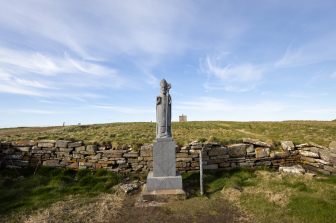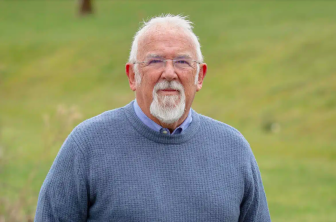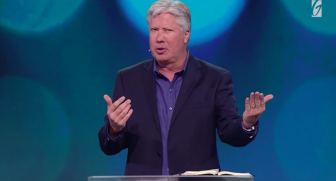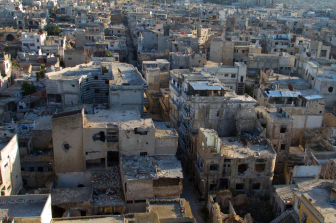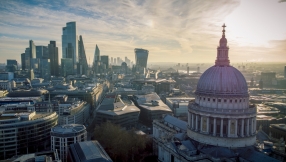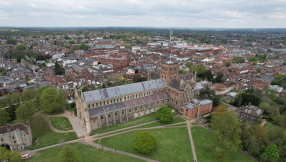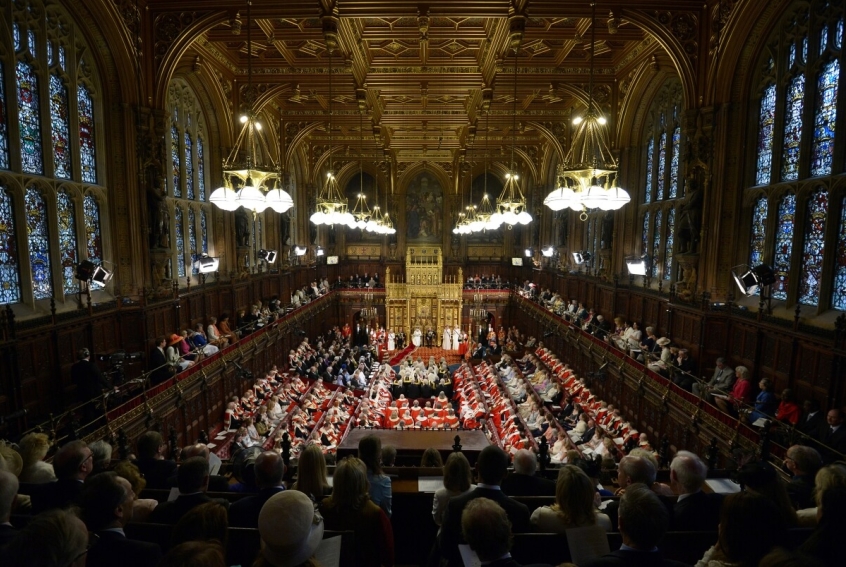
The House of Lords voted overwhelmingly last night in favour of plans to relax abortion restrictions to Northern Ireland despite strong objections from conservative peers.
Baroness O'Loan had sought to introduce an amendment to address the "democratic deficit" in the Northern Ireland (Executive Formation) Bill by requiring the agreement of a majority of Northern Ireland Legislative Assembly members, but her proposals were defeated.
She is behind an open letter signed by over 19,000 people calling on Prime Minister Theresa May to withdraw the Bill passed in the Commons last week that will extend abortion and same-sex marriage to the province if devolution is not restored by October 21.
Speaking during the debate in the Lords last night, she questioned why the Government was moving ahead with the plans despite there being no obligation to do so.
"My Lords, this is a strange Bill, and it seems to get stranger as we go along," she said.
"I will say at the beginning that this is not a Bill in a situation of grave emergency. There are no human rights judgments that require action by the Government in the absence of the Northern Ireland Assembly—and even if there were, there would be no obligation on us to act."
She and other peers voiced concern about the lack of clarity around the upper abortion limit that will come into effect in Northern Ireland in the event that the legislation is implemented.
While the upper limit in the UK is 24 weeks, it was suggested during the debate that under the current legislation, abortion in Northern Ireland would be permitted for any reason up to 28 weeks.
Assurances from Lord Duncan that the Bill was not legalising abortion beyond 24 weeks did little to allay concerns.
Lord Morrow said that the Bill would "propel Northern Ireland from having the most restrictive abortion law in the UK to having the most liberal, not only in the UK but in the whole of Europe," and may result in women travelling from England to Northern Ireland for late-term abortions.
"It is curious that, in 2019, we should be presented with a proposal for abortion law reform based on a 50 year-old understanding of viability. Babies now survive at 22 weeks," he said.
"That a place whose democratically elected Assembly voted in 2016 by a clear majority not to change abortion law in any way—a vote which was right across the whole political spectrum—pending an inquiry into abortion in relation to fatal foetal abnormality, should have a regime imposed on it by parliamentarians from other parts of the UK where the abortion law would be more conservative, leaves me lost for words.
"It would result in women who were 27 weeks pregnant travelling from England to Northern Ireland to get abortions in our Province because the laws protecting the rights of the unborn in England would be stronger than those in Northern Ireland."
Lord Duncan also sought to address concerns around religious freedm.
"Article 9 of the European Convention on Human Rights guarantees the right to freedom of religion and freedom of conscience," he said.
"That is not in doubt, not debated and not disputed, and will not be in any way eroded by anything we do here today—full stop. It is important to remember that all the legislation will comply with that and ensure we move that forward.
"Absolutely at the heart of this must be a belief in Northern Ireland that faith-based groups will not experience some sort of prejudice because they express their faith in fashions which do not recognise the situation today."
Lord McCrea expressed his regret that not a single bishop from the Church of England took part in the debate.
"The issues we have been discussing today have tremendous moral implications for our nation, especially in Northern Ireland," he said.
"I am sad that, at a time when we need spiritual leadership, there is a Bench that is completely empty and its members are not present to give us that spiritual leadership on issues which have major moral implications for the people of the United Kingdom."
The Bill is to be debated by MPs in the House of Commons again on Thursday.
Northern Ireland bishops have voiced their strong opposition to the legislation. Ahead of Wednesday's debate, they issued a joint statement expressing their "alarm at the unprecedented way in which the Westminster Parliament has used the Northern Ireland (Executive Formation) Bill to rush through legislation which will have a devastating impact on the right to life of unborn children".
"The equal right to life, and love, of a mother and her unborn child is so fundamental to the common good of every society that citizens deserve the fullest participation in the democratic debate about the legislation which governs it," they said.
"This also applies to decisions regarding the nature of marriage. What is happening in Westminster during these days recklessly undermines this fundamental right of citizens and the principle of devolution at the heart of the Good Friday Agreement.
"It should be a matter of grave alarm for every citizen in Northern Ireland and all who cherish the right to life as the most fundamental of all human rights."
They called on the Prime Minister and Westminster to "overturn this hijacking of the Northern Ireland (Executive Formation) Bill for purposes for which it was never intended and to uphold the right of citizens in Northern Ireland, under the Good Friday Agreement, to decide these matters for themselves".
The letter was signed by the Archbishop of Armagh, Eamon Martin, the Bishop of Down and Connor, Noel Treanor, the Bishop of Derry, Donal McKeown, and the Bishop of Clogher, Larry Duffy.
